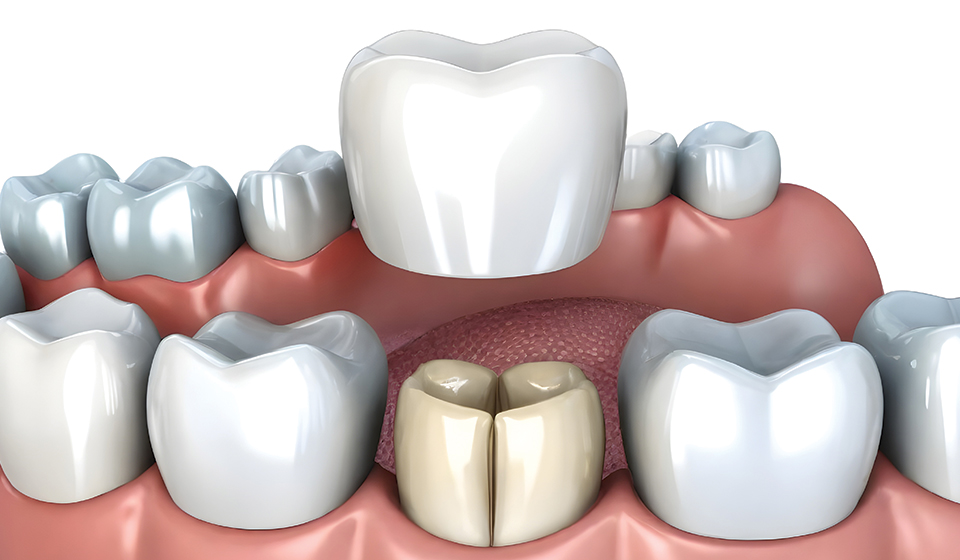Dental crowns in Houston are a common restorative treatment used to protect, strengthen, and improve the appearance of damaged or weakened teeth. If you’re considering getting a dental crown, you may have many questions about the procedure, its benefits, and what to expect. Here are some frequently asked questions about dental crowns to help you better understand this crucial dental treatment:
What is a dental crown?
A dental crown is a tooth-shaped cap that is placed over a tooth to cover its entire visible portion. It is designed to restore the tooth’s shape, size, strength, and appearance. Crowns are typically made of porcelain, ceramic, or metal alloys, and they can be customized to match the color of your natural teeth for a seamless look.
When is a dental crown necessary?
Dental crowns are recommended in various situations, including:
- To protect a weakened tooth from further damage or cracking
- To restore a tooth that has been severely damaged by decay or trauma
- To cover and support a tooth after a root canal treatment
- To improve the appearance of discolored, misshapen, or disproportionate teeth
- To secure a dental bridge or serve as an anchor for a dental implant
What is the process of getting a dental crown?
The process of getting a dental crown typically involves two appointments:
First appointment: Your dentist will prepare the tooth by removing a small amount of enamel to create space for the crown. They will then take impressions or digital scans of your tooth to create the custom crown.
Second appointment: Once the dental laboratory has fabricated your custom crown, your dentist will carefully place and cement it onto your prepared tooth, ensuring a proper fit and bite.
How long do dental crowns last?
With proper care and maintenance, dental crowns can last anywhere from 5 to 15 years or even longer. The longevity of a crown depends on several factors, including the materials used, your oral hygiene habits, and the amount of force or pressure exerted on the crown during chewing or grinding.
Are dental crowns noticeable?
Dental crowns are designed to blend in seamlessly with your natural teeth. Modern crowns made of materials like porcelain or ceramic can be customized to match the color, shape, and texture of your surrounding teeth. When placed by an experienced dentist, crowns should look and feel natural, making them virtually undetectable.
Is the procedure for getting a dental crown painful?
Getting a dental crown typically involves some degree of discomfort, but it should not be overly painful. Your dentist will likely numb the area around the tooth using local anesthesia to ensure your comfort during the procedure. You may experience some sensitivity or tenderness after the numbing wears off, but this can be managed with over-the-counter pain medication as recommended by your dentist.
How do you care for my dental crown?
Proper oral hygiene is essential for maintaining the longevity of your dental crown. Here are some tips for caring for your crown:
- Brush and floss regularly, paying special attention to the area around the crown
- Avoid biting or chewing on hard objects that could damage the crown
- If you grind your teeth at night, wear a protective night guard to prevent excessive wear
- Visit your dentist regularly for professional cleanings and check-ups
Can dental crowns become discolored or stained?
While dental crowns are highly resistant to staining, they can potentially become discolored over time due to certain habits or dietary factors. Porcelain and ceramic crowns are more resistant to discoloration than metal crowns. It’s recommended to avoid excessive consumption of staining foods and beverages like coffee, tea, or red wine and to quit smoking to minimize staining.
Conclusion
Getting a dental crown in Houston is a common and effective way to restore the function, strength, and appearance of a damaged or weakened tooth. By understanding the process, benefits, and care requirements, you can make an informed decision about whether a dental crown is the right treatment option for you. If you have any additional questions or concerns, be sure to discuss them with your dentist, who can provide personalized guidance based on your individual needs and oral health condition.






